Diversity, Equality & Inclusion
Our Mission
Diversity, equality, and inclusion are core values for our department. This committee is dedicated to fostering an inclusive environment for patients, employees, and trainees alike. We aim to promote a culture of equality across all segments of our workplace. Empowering all individuals and encouraging diverse representation will enhance our ability to serve our communities, perform groundbreaking research, and inspire teaching for the next generation of physicians and scientists in vision and eye care.
Overview
Diversity, equality, and inclusion are core values for the UC San Diego Viterbi Family Department of Ophthalmology and the Shiley Eye Institute. We aim to promote a culture of equality across every segment of our workplace. Empowering all individuals and encouraging diverse representation will enhance our ability to serve our communities in the clinic locally and globally, perform groundbreaking research, and inspire teaching for the next generation of physicians and scientists in vision and eye care.
We are working in conjunction with UC San Diego Health Sciences and School of Medicine as well as the UC San Diego campus to address systemic inequities. As part of this effort, we are engaging in a range of training programs and initiatives. We also have mentorship programs and outreach activities for trainees and staff from traditionally under-represented groups. We welcome your questions about diversity in the UC San Diego Viterbi Family Department of Ophthalmology at the Shiley Eye Institute, please contact Dr. Sally Baxter (Diversity, Equality & Inclusion Committee Chair).
Minority Ophthalmology Mentoring Program
For many years, the Shiley Eye Institute and Viterbi Family Department of Ophthalmology has supported the American Academy of Ophthalmology (AAO) Minority Ophthalmology Mentoring Program, which provides a dynamic mentoring program for underrepresented in medicine (URiM) students, including one-on-one mentorship, guidance in medical career planning, networking opportunities, and access to educational resources. Several of our faculty members have also volunteered to be mentors in the program.
Medical Student Research Opportunities
The Shiley Eye Institute and Viterbi Family Department of Ophthalmology also supports diverse medical students interested in vision science and ophthalmology research through the UC San Diego MSTAR program. This is a fully funded summer research experience for medical students between their first and second years of training. We have a wide array of ophthalmology faculty who serve as research mentors for this program. Students from traditionally underrepresented groups are especially encouraged to apply.
Meet Our Diversity, Equality, and Inclusion Committee at Shiley
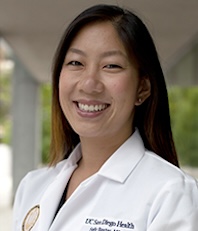
Sally Baxter, M.D., MSc
Assistant Professor
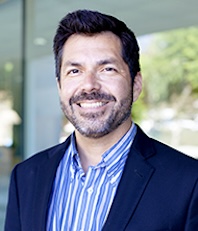
Henry Ferreyra, M.D.
Professor
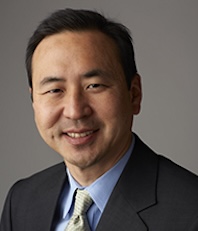
Don O. Kikkawa, M.D., FACS
Professor
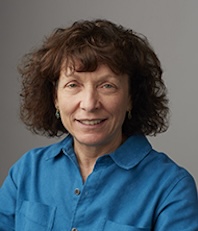
Linda M. Zangwill, Ph.D.
Professor

Liane Dallalzadeh, M.D.
Chief Resident
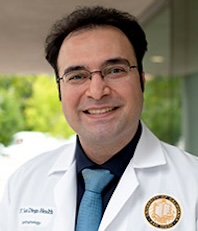
Medi Eslani, M.D.
Resident

Helena Gali, M.D.
Resident

Alexandria Li, M.D.
Retina Fellow
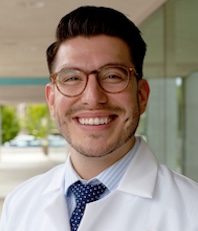
George Villatoro, M.D.
Resident
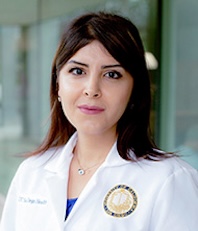
Adeleh Yarmohammadi, M.D.
Chief Resident
Engagement with UC San Diego Health and Campus
We are actively engaged with institutional initiatives related to diversity, including the Graduate Medical Education (GME) Sub-Committee on Diversity as well as the UC San Diego Health Anti-Racism and Diversity Task Force. Here are some frequently asked questions regarding diversity initiatives across UC San Diego specifically relevant to medical students and GME trainees.
Justice, Equity, Diversity, and Inclusion (JEDI) Frequently Asked Questions
Whether you are a medical student, resident, or fellow, we have an abundance of JEDI resources here at the University of California San Diego (UCSD) School of Medicine. Here are some frequently asked questions but if you have any additional questions not listed here, please reach out to Charles Goldberg, M.D. or Daniel Lee, M.D., Ph.D.
Where can I find information regarding diversity resources at UC San Diego?
Information about diversity and inclusion is available through multiple venues. First, there are several websites available that provide information about diversity initiatives across the entire campus and the School of Medicine. Many departments have their own websites as well.
Virtually all departments at UC San Diego have identified an Equity, Diversity, and Inclusion (EDI) ambassador, typically a faculty member who spearheads diversity-related initiatives in their areas/specialties and also collaborates with various entities across the medical school.
What affinity organizations for medical students from traditionally under-represented groups are active at UC San Diego?
There are several active affinity organizations for UC San Diego medical students. These include:
- The Association of Native American Medical Students (ANAMS)
- The Asian Pacific American Medical Students Association (APAMSA)
- LGBTQ Pharmacy and Medical Students (LGBTQ-PhaM)
- The Latino Medical Student Association (LMSA)
- Medical Students for Justice (MS4J)
- The Student National Medical Association (SNMA)
UC San Diego also offers a curricular pathway called Program in Medical Education – Health Equity (PRIME - HEq), which part of a system-wide effort at the University of California to train physicians better able to meet the needs of the diverse Californian population who are traditionally underserved by the medical system. PRIME-HEq faculty work with students to identify populations or communities at risk for health disparities. Students will then receive exposure, training, and the opportunity to work with the identified group to further their passion in the area and provide knowledge and skills to better equip the students to improve health equity for the group.
Has UC San Diego invested in any diversity-related initiatives on an institution-wide level?
Yes, UC San Diego has several diversity-related initiatives that span the institution and reflect the deep institutional commitment and investment in these issues. These are just a few examples:
- Creating new leadership positions, including an Assistant Vice Chancellor for the professional schools and a Chief Administrative Officer in the Health system
- Organization of an Anti-Racism and Diversity Task Force, with multiple work streams including Academics and Research in Graduate Medical Education (GME), Undergraduate Medical Education (UGME), Pharmacy, and Public Health; Organizational Training/Enrichment; Recruitment, Retention, and Representation; Healthcare Policies; and Health Disparities and Inequities
- Formation of a committee to address respect, language, and professionalism in the healthcare setting
- Implementation of a policies to address racism and discrimination in the health system
- Mandating anti-racism training for all UC San Diego Health Sciences Leaders and developing long-term and sustainable training options for Health Sciences faculty, staff, students, trainees, and administrative leaders.
- Including a Health Sciences student, resident, and faculty member on the general campus Equity, Diversity and Inclusion (EDI) Advisory Council
- Campus-wide "Conversation on Transformational Policing at UC San Diego" to share concerns based on interactions between Black medical students and UC San Diego Police, and to offer suggestions pertaining to racially based non-emergency calls and managing mental health emergencies.
- Identifying EDI ambassadros in nearly every academic department and administrative unit in Health Sciences to raise issues and promote awareness in their respective areas.
- Creating a new American Indian and Alaskan Native Health Academic Concentration in the School of Medicine.
- Establishing a Center for Empathy and Social Justice in Human Health in the Sanford Institute for Empathy and Compassion
- Creating a Health Promotion and Equity Center of Excellence at the Herbert Wertheim School of Public Health and Human Longevity Science
- Conducting medical education and EDI audits to evaluate policies, practices and procedures
- Establishing the Sandra Daley Award for Advancement of Equity, Diversity and Inclusion, which is awarded to a graduating student every year in honor of the pioneering efforts of Dr. Sandra Daley, former Associate Chancellor and Chief Diversity Officer at UC San Diego School of Medicine
Does UC San Diego offer any peer mentoring programs for trainees from underrepresented backgrounds?
Yes! UC San Diego residents and fellows participate in a peer mentoring program called RISE: Residents In Solidarity with Emerging Leaders. This program is geared toward medical students from under-represented backgrounds in their clinical years. They are paired with residents or fellows, including under-represented minorities and allies, who are only a few years ahead of them in training. While the program started in internal medicine, it has now expanded to include multiple specialties and departments.
Residents and fellows can also network and develop peer mentoring relationships with each other through the San Diego House Staff Association which is an independent union that includes all specialties within its membership ranks. SDHSA organized multiple social events and community-building activities throughout the year.
Do students and housestaff at UC San Diego work with diverse patient populations?
Yes, the patient populations whose care teams include medical students, residents, and fellows at UC San Diego are diverse in many ways. Not only is there a wide range of pathology and practice settings, but patients at UC San Diego also come from all backgrounds and represent a diverse range of racial and ethnic groups, sexual orientation and gender identities, religious and cultural backgrounds, languages, and more. The surrounding region is a thriving metropolitan area, and with the international border only 30 minutes away, local health is global health here in San Diego.
Additional Links and Resources
- UC Campus Diversity Efforts
- UC San Diego Office for Equity, Diversity, and Inclusion
- Center for Faculty Diversity and Inclusion
- UC San Diego School of Medicine Office of Diversity and Community Partnerships
- UC San Diego Student National Medical Association
- UC San Diego Black Resource Center
- UC San Diego Latino Medical Student Association
- UC San Diego Women's Center
- UC San Diego Hispanic Center of Excellence
- UC San Diego LGBT Resource Center
